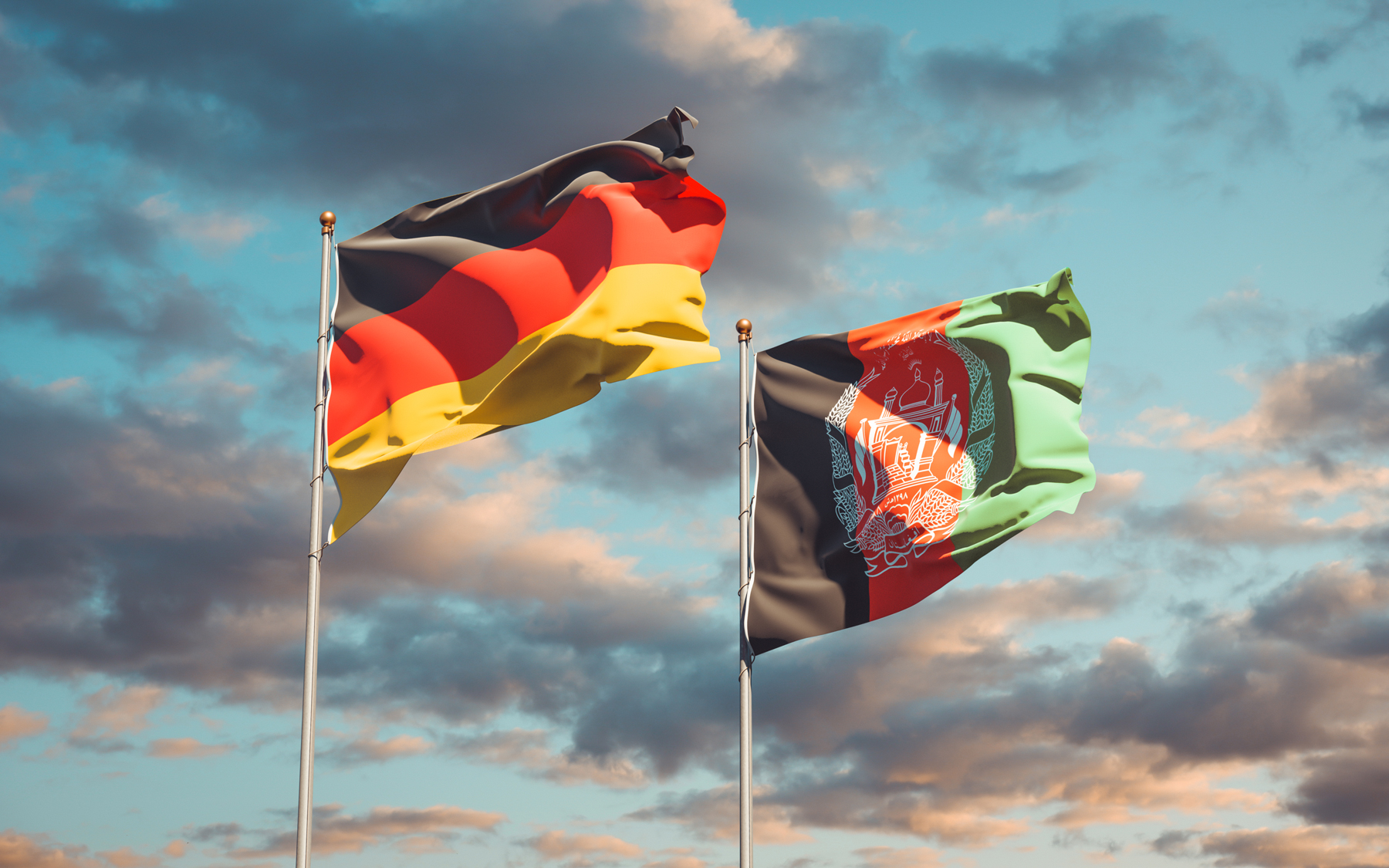
Afghanistan in The Republic of Germany

Germans are popular in Afghanistan. Actually, for reasons that are not always comprehensible. Much more important, however, this closeness began when the diplomatic mission headed by Oskar von Niedermayer arrived in Kabul in 1914. At that time Amir Habibullah Khan was king of Afghanistan.
Already at the beginning of the 20th century Germany took a special position for Afghanistan, and the country had a geopolitical interest in Afghanistan. So did other countries, but Germany never raised any colonial demands, and was interested in an equal alliance with Afghanistan. This attitude naturally attracted attention.
Economic and Education
Nevertheless, Germany’s equal right treatment laid the foundation for the following German-Afghan missions. In 1921, an Afghan delegation traveled to Germany to sign contracts with numerous companies, and as early as 1923 the German-Afghan trading company was founded.
During the Weimar Republic era, Afghan King Amanullah and the Egyptian King Faruk were the only heads of state who visited the largely isolated Berlin. This said, the visited attracted attention and served as a symbolic sign. As a result, the economic relations improved. It was not surprising that by end of the 1930’s, seventy percent of Afghan industrial equipment was imported from Germany, and German companies such as Siemens were assisting Afghanistan’s infrastructure programs. It was also the German Lufthansa, which in 1937 for the first time established a western flight connection between Berlin and Kabul.
A brisk exchange between the two countries started as well in the education sector. The German Nejat School was founded in Afghanistan, which have been attended by later state presidents such as Mohammad Yusof, Samad Hamed and Babrak Karmal. German teachers were teaching at the German Nejat School until 1984.
Development
The two countries remained in touch during the Second World War. Afghanistan strictly showed neutrality in the conflict. When the international community asked Afghanistan to surrender the 180 Germans living in the country, Afghanistan refused. This was contrary to the principles and culture of Afghan hospitality. Later it was agreed that the Germans would be expelled, but through appropriate and secured escort by Afghans Forces and Diplomats.
The Afghan elite was never opposed to the national socialist racial doctrine, but they considered themselves to be the authentic descendants of the Aryan people whose empire Ariana had been founded on Afghan territory. It is therefore not surprising that close contacts were resumed at the end of the war. Afghanistan also hoped to enlist Germany as a major partner in its ambition to gain strength and power through a comprehensive modernization program. The extension of educational policies aimed to strengthen and further the bilateral diplomatic and economic partnership. The Goethe institute emerged to foster the international and cultural cooperation. Not to be ignored: Today, Hamburg city has the largest community of exiled Afghans in Europe.
There have been numerous development projects since. Following India and Egypt, Afghanistan was the third largest beneficiary of German development aid in the late 70s. The Paktia project, where German experts built and modernized a whole province, is one of the largest German projects until today.
The Deutsche Democratic Republic (DDR) was also committed to actively engage with Afghanistan and its culture, working independently and without political ties. For example, the Humboldt University in Berlin adopted the subject of Afghan-ology, and many Afghans came to study in Berlin, Dresden or Leipzig. It was due to the fall of president Mohammad Najibullah in 1992 that ended these intense relations. The Soviet invasion in Afghanistan in 1979 caused the withdrawal of Germans from furthering closer partnerships. The war led to immense refugee movements, mainly to Pakistan and Iran. However, the US and Germany were also the target countries of the exiles, where thousands of members of the intellectual elite of Afghanistan fled to.
Germany repeatedly condemned the Russian invasion and pleaded the withdrawal of “foreign troops” from Afghanistan. At the same time, Germany provided humanitarian aid alleviating the most severe emergency in the country.
Reconstruction
When the international community faced the question of Afghanistan’s future in the wake of the US-led attack to oust the Taliban in late 2001, Germany took the initiative to invite all parties to Afghan Peace Talks held in Petersberg near Bonn. Apart from the obvious explanation that Germany unlike France or Britain has been more circumspect in its statements on political issues, there were other reasons for choosing Germany as the venue of this conference. Since Germany had no colonial past in this region, it’s no wonder that the Afghans looked upon Germany as a benevolent country. And Germany has been always a respectful ally. The “Great Game” of the nineteenth century, involving imperial Russia and imperial Britain was testimony to British ambitions in Afghanistan.
Since 2003 the German ISAF (International Security Support Group) had led the training and development of the Afghan National Police. The NATO training mission Resolute Support (RS), which replaced the ISAF mission, followed in early 2015.
German experts also advocated a functioning judicial system. In addition, a better drinking water supply for the capital Kabul and provincial cities such as Kundus and Herat was established. Road construction is being pushed ahead. In order to provide sustained impulses for the overall economic development in Afghanistan, Germany is promoting business start-ups as well as vocational education and training measures. With the help of Germany, many schools have also been rebuilt. Teacher training and further training is also an important part of the German commitment.
Germany has initiated reconstruction efforts and has been supporting and coordinating the training and equipping of Afghans in various fields. These are positive moves for peace in Afghanistan and also the larger region. Afghans will always remember these efforts.

